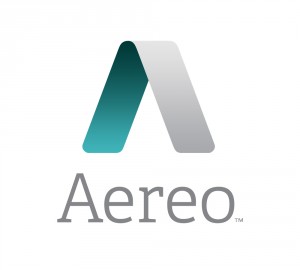 An innovative plan to rent New Yorkers a dime-sized over-the-air antenna housed in a Brooklyn data center to receive and stream local broadcasters could be the end of broadcast TV as we know it, at least if you believe the claims being made by network executives in their high-powered lawsuit.
An innovative plan to rent New Yorkers a dime-sized over-the-air antenna housed in a Brooklyn data center to receive and stream local broadcasters could be the end of broadcast TV as we know it, at least if you believe the claims being made by network executives in their high-powered lawsuit.
Aereo, which charges $12 a month to an invitation-only customer base, is the target of serious legal action brought by the major broadcast networks and local TV stations that believe Aereo’s disruptive business model could allow cable operators to avoid paying retransmission consent fees for free, over the air television signals.
Aereo only streams local broadcasters in the New York metropolitan area to residents within viewing range of the signals. The company argues it operates legally because of a time-tested, sound legal principle: the Communications Act of 1934, which offers broadcasters a license to use the public airwaves in return for operating in the public interest. Aereo only rents its tiny antennas to one customer at a time, and provides them with streamed video received by that antenna. The company charges a nominal monthly fee to cover the costs of operating its data center and to cover streaming expenses.
The monthly subscription fee grants viewers access to watch one channel while recording another on a cloud-based DVR “storage locker.” Viewers can watch the signals on just about any device, as long as they are located within the New York metropolitan area. Travelers and those who live outside of the area cannot watch programming or subscribe to the service.
The threat to the nation’s pay television operators and broadcasters is obvious. Over the air television broadcasters increasingly rely on so-called “retransmission consent payments” collected from pay television operators in return for permission to place their signals on the cable, telco, or satellite TV dial. Broadcasters bank on that growing revenue. Pay television providers grudgingly agree to the payments and promptly pass them on to already rate-increase-weary subscribers, who want a way out of paying for hundreds of channels they don’t care to watch.
Aereo breaks the business models of both broadcasters and the cable industry. Cord cutters can get reliable and cheap reception of over-the-air stations without dealing with cumbersome in-home antennas (or paying local cable companies for HD-quality local stations and a DVR box). Goodbye $70 cable-TV bill. Broadcasters also lose every time the local pay television company drops a subscriber. Aereo does not pay retransmission consent fees, nor do their subscribers.
But Aereo is not all bad news for pay television providers. If Aereo can survive the legal onslaught from broadcast interests, nothing stops local cable companies from licensing Aereo technology (or constructing their own system) that would bypass retransmission consent fees as well. That could save cable operators millions.
Ridiculous? Not according to Matt Bond, an executive vice-president at Comcast/NBC who told a New York federal court the risk is real.
“It makes little economic sense for cable systems and satellite broadcasters to continue to pay for NBCU content on a per-subscriber basis when, with a relatively modest investment, they can simply modify their operations to mirror Aereo’s ‘individual antenna’ scheme and retransmit, for free, over-the-air local broadcast programming,” Bond said. “I know for a fact that cable companies have already considered such a model.”
Broadcasters revile Aereo’s disruptive innovation. Bond called the service “piracy.” Other network executives say it steals their content and resells it at a profit. Some are even predicting the destruction of broadcast television as we know it if Aereo is found to be legal. Virtually every network is on board for the lawsuit, which seeks an immediate injunction that would shut the service down.
Barry Diller, a veteran broadcast executive, has invested in Aereo and calls the broadcasters’ fears rubbish.
“It’s not the beginning of the destruction of anybody,” Diller told New York Magazine. “TV wasn’t the destruction of the movie business. Television wasn’t the destruction of radio. Cable wasn’t the destruction of broadcast networks. What happens is new alternatives come, and they live alongside whatever existed.”
“You have an antenna that has your name on it, figuratively … and it’s one-to-one. It is not a network,” Diller told members of the Senate Commerce Committee during a recent hearing. “It is a platform for you to simply receive, over the Internet, broadcast signals that are free and to record them and use them on any device that you like.”
Aereo is not a pioneer in the video streaming of over the air signals. iCraveTV launched in 1999 streaming broadcast stations from Buffalo, N.Y. and Ontario, Canada from its home base in Toronto. Broadcasters filed suit and quickly shut the service down. ivi-TV tried a similar venture in 2011 and was also shut down. Even companies experimenting with IPTV technology have run into trouble with some networks that feel threatened by a possible precedent that could be mistakenly established, starting a flood of similar services.
To date, only services that agree to broadcaster sanctions (Slingbox) or who have retransmission consent contracts with providers (such as the cable industry’s TV Everywhere project) have survived, but all have limitations imposed on their functionality that reduce their usefulness to consumers.
[flv width=”640″ height=”500″]http://www.phillipdampier.com/video/Aereo TV Demo May 2012.flv[/flv]
Aereo TV was demonstrated by the company CEO Chet Kanojia at the New York Tech Meetup May 9. (21 minutes)


 Subscribe
Subscribe
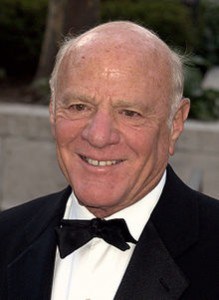
 Locast, like Aereo and Ivi before it, has ceased streaming local, over the air television signals on a non-profit basis after a New York federal court judge ruled the service is violating U.S. copyright law by receiving more funding than it needs. But in developments this afternoon, there is word an appeal is planned.
Locast, like Aereo and Ivi before it, has ceased streaming local, over the air television signals on a non-profit basis after a New York federal court judge ruled the service is violating U.S. copyright law by receiving more funding than it needs. But in developments this afternoon, there is word an appeal is planned.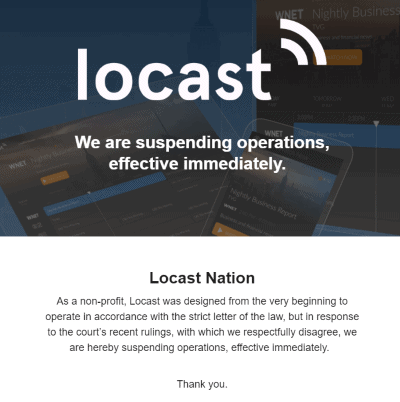 Judge Louis L. Stanton rejected Locast’s claim it was exempt from Section 111 (a) (5) of the U.S. Copyright Act, which allowed it to stream over the air signals without getting permission from those stations in advance. That section of the Copyright Act was designed to provide a loophole for independent non-profit translator stations, which in some rural areas pick up difficult to receive TV stations and rebroadcast them locally on other channels. Some of these translator operations existed before the days of cable and satellite television, and well before the internet as we know it ever existed. But many of these services were provided through low-power transmitters operated inside large apartment complexes or hotels for the enjoyment of tenants or guests. The Copyright Act allowed groups to retransmit TV signals as long as they lacked “direct or indirect commercial advantage” and did not charge viewers in excess of the “actual and reasonable costs of maintaining and operating the secondary transmission service.”
Judge Louis L. Stanton rejected Locast’s claim it was exempt from Section 111 (a) (5) of the U.S. Copyright Act, which allowed it to stream over the air signals without getting permission from those stations in advance. That section of the Copyright Act was designed to provide a loophole for independent non-profit translator stations, which in some rural areas pick up difficult to receive TV stations and rebroadcast them locally on other channels. Some of these translator operations existed before the days of cable and satellite television, and well before the internet as we know it ever existed. But many of these services were provided through low-power transmitters operated inside large apartment complexes or hotels for the enjoyment of tenants or guests. The Copyright Act allowed groups to retransmit TV signals as long as they lacked “direct or indirect commercial advantage” and did not charge viewers in excess of the “actual and reasonable costs of maintaining and operating the secondary transmission service.”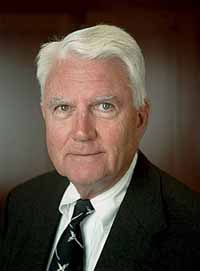
 Before 1976, under two Supreme Court decisions, any company or organization could receive an over-the-air broadcast signal and retransmit it to households in that broadcaster’s market without receiving permission (a copyright license) from the broadcaster. Then, in 1976, Congress passed a law overturning the Supreme Court decisions and making it a copyright violation to retransmit a local broadcast signal without a copyright license. This is why cable and satellite operators, when retransmitting a broadcast signal, either must operate under a statutory “compulsory” copyright license, or receive permission from the broadcaster.
Before 1976, under two Supreme Court decisions, any company or organization could receive an over-the-air broadcast signal and retransmit it to households in that broadcaster’s market without receiving permission (a copyright license) from the broadcaster. Then, in 1976, Congress passed a law overturning the Supreme Court decisions and making it a copyright violation to retransmit a local broadcast signal without a copyright license. This is why cable and satellite operators, when retransmitting a broadcast signal, either must operate under a statutory “compulsory” copyright license, or receive permission from the broadcaster.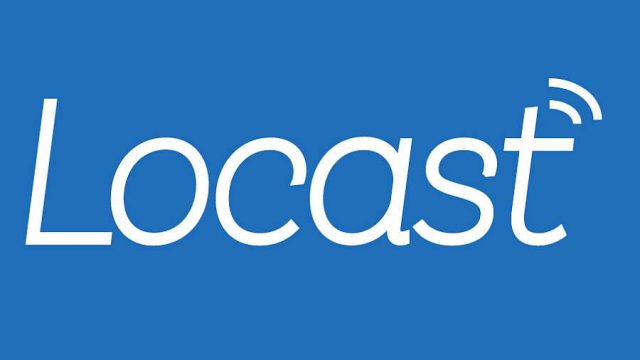 If you are a resident of New York City, you can now stream 15 over the air local television stations for free, at least until the station owners send their lawyers after the coalition running the new service.
If you are a resident of New York City, you can now stream 15 over the air local television stations for free, at least until the station owners send their lawyers after the coalition running the new service.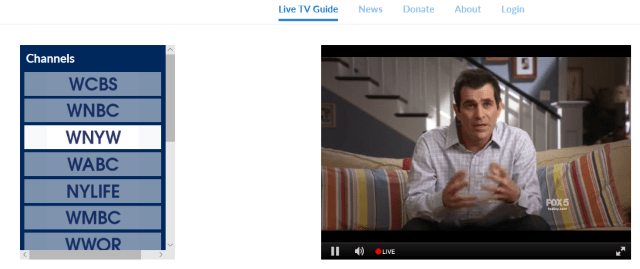
 In 1999, iCraveTV provided more than a dozen Canadian and American television stations received over the air in Toronto made available to a nationwide online audience. The over-the-air stations (and the networks they affiliated with) in Buffalo, N.Y., promptly launched legal action against the company, challenging its claim it was entitled to offer the service because it was effectively a cable operator. International copyright law claims led to a preliminary injunction against the service and the threat of costly ongoing litigation convinced the owner of iCraveTV to stop the service in return for dropping lawsuits.
In 1999, iCraveTV provided more than a dozen Canadian and American television stations received over the air in Toronto made available to a nationwide online audience. The over-the-air stations (and the networks they affiliated with) in Buffalo, N.Y., promptly launched legal action against the company, challenging its claim it was entitled to offer the service because it was effectively a cable operator. International copyright law claims led to a preliminary injunction against the service and the threat of costly ongoing litigation convinced the owner of iCraveTV to stop the service in return for dropping lawsuits.